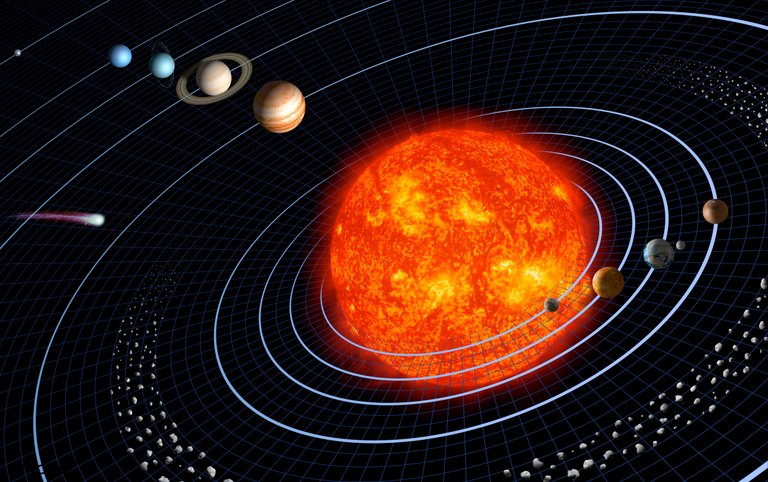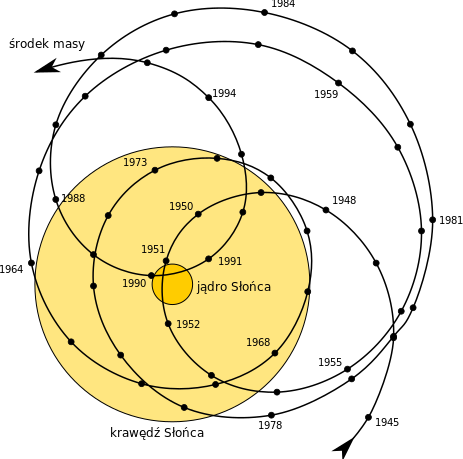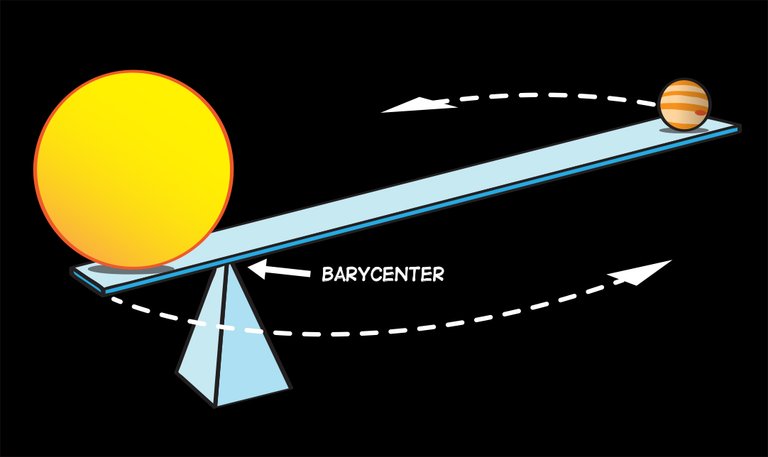Is The Sun at the Center of the Solar System?
Elementary science tells us that the earth orbits the sun and thus the earth is at the center of the solar system. In fact in so many movies and animation, this has been depicted that way so if a person comes to you to tell you otherwise, you will look at that person with skepticism and glance of not knowing what they are saying. So if you want to look at anyone the weird way, then look at me that way because the sun isn't the center of the solar system at least for now.
I used the word for now because science is always on the move as it is ongoing. I know a lot of you reading are wondering what's going on, well with science you never understand what an idea is until you know and understand where it is coming from so let's go back a little.
In the 1400s, astronomers believed that the earth was in the middle of the universe and every other things revolves around it but today we know that the stars and planet moving across the sky are in motion and this motion is also created by a moving earth through space.
Philosophers like Aristotle in 384 BC to 322 BC agreed that the earth was round, and he mentioned the seven bright sky things which were the moon, the sun, Mercury, Mars, Venus, Jupiter, and Saturn. Since this bodies wondered around the sky, they were referred to as wanderers or planetes which revolves around earth. To Aristotle, the earth didn't move, rather the heavens moved and these was the Universe.
Over the years for some 1000 to 2000 years, people began to understand that what Aristotle said wasn't what was going on, or what they were experiencing so they had to do something. They were able to see that planetes like Mars would stop, go backwards, and forward again which was something that Aristotle's idea didn't give an explanation into it. People like Glaudius Ptolemy decided to retrograde motion saying that although the planets circled the earth, they also move in their circles which he referred to as epicycles. I must confess that it sounded convincing so I can imagine that everyone accepts it without any questioning since the eye was the only thing that could be used to see these things.
Seeing that Ptolemy's calculation was wrong, mathematicians and astronomers like Copernicus in 1543 decided to recalculate the heavens and he came up with a heliocentric cosmology where the sun was in the middle of the Universe, the earth moving around it but still rotating around its axis, and the other planets also doing the same thing at different speed.
In all this, there was no why and even myself, I am asking the same question Why? This is where Johannes Kepler comes in and he was going to look into why planets were either moving faster or slower in the sky. He concluded that this happened because the orbits are ellipses and not circle as it was believed. Soon, people like Galileo Galilei started to use instruments to check the space and he saw that other planets had their own moons. He also noticed that Venus had phases similar to that of our moon and these things were only possible if they were orbiting the sun.
Newton went on to add icing on the cake when he said that the movement of the planet wasn't held by magic but rather gravity. Now to the slight inaccuracy of heliocentrism according to some scientist, if we are to look at Newton's law on gravity, we will realize that any two thing with mass exerts gravity on each other with A pulling B just as B pulls A. With this, it means the earth and the moon are both orbiting between the two of them and not at the center, and jupiter and the sun are orbiting with gravity as well. The universe center currently is outside the sun, and according to some scientist there is no center for the universe. According to William Herschel, Friedrich Bessel, while the sun is at the barycenter of the Solar System, it is not at the center of the universe.
For now this is correct but with science, we haven't reached the last of it because we have been able to send space telescopes to help with findings, are we keep going deeper into the solar system with greater precision which means that what we know today about the solar system and the universe might change in the near future but be sure that science would give an explanation for it.
Read More
https://physics.info/heliocentrism/
https://phys.libretexts.org/Bookshelves/Astronomy__Cosmology/
https://www.uu.edu/dept/physics/scienceguys/2004Jan.cfm
https://thonyc.wordpress.com/2016/01/27/a-misleading-illustration/
https://farside.ph.utexas.edu/books/Syntaxis/Almagest/node3.html
https://phys.libretexts.org/Bookshelves/College_Physics
https://www.e-education.psu.edu/astro801/content/l2_p6.html
https://courses.lumenlearning.com/suny-ncc-astronomy/chapter/newtons-universal-law-of-gravitation/
https://www.wtamu.edu/~cbaird/sq/2013/09/17/where-is-the-center-of-the-universe/
https://math.ucr.edu/home/baez/physics/Relativity/GR/centre.html
https://data.isiscb.org/p/isis/authority/CBA000113738/



Thanks for your contribution to the STEMsocial community. Feel free to join us on discord to get to know the rest of us!
Please consider delegating to the @stemsocial account (85% of the curation rewards are returned).
Thanks for including @stemsocial as a beneficiary, which gives you stronger support.